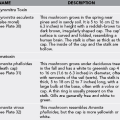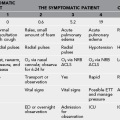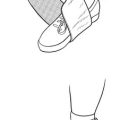Mental Health
a. Typically individuals with this coping style are highly emotionally expressive and may display “clinginess” and extreme dependence on others.
a. Individuals distance themselves from others and appear aloof and self-sufficient.
Anxiety
Signs and Symptoms
1. Excessive worrying out of proportion to the situation, with preoccupying concerns and fears
2. Increased heart rate, blood pressure, and respirations, sweaty palms
3. Nausea and diarrhea, muscular tension
4. Extreme: “fight or flight” with dramatic increase in physical manifestations; altered memory
Panic Attack
Signs and Symptoms
1. Typically lasts 10 to 30 minutes
2. With or without obvious cause or trigger
3. Sensation of pounding heart, chest pain, nausea, dizziness, numbness, chills, hot flushes, shortness of breath
4. Hyperventilation, sweating, trembling
6. Fear of dying, having a heart attack, going crazy, or losing control
Depression (with or Without Mania)
Mania
1. Rapid, pressured speech that is difficult to interpret
3. Excessive gregarious behavior
5. Impaired judgment in all matters, including risk taking, financial, and social
Schizophrenia
Treatment
For Florid Psychosis
1. Consider increase in prescribed antipsychotic medications.
2. Administer haloperidol 0.5 to 5 mg PO bid or lorazepam 2 to 4 mg PO bid.
3. Keep the patient from hurting himself or herself or others.
4. Arrange for emergent evacuation.
5. Consider other causes for the behavior: head injury, illicit drugs, brain tumor, metabolic disturbance, and heat-related illness.
Substance Abuse Disorders
Alcohol and benzodiazepine withdrawal are medical emergencies.
Post-Traumatic Stress Disorder
Symptoms
1. Reliving the event, including “flashbacks,” nightmares, upsetting memories, and periods of emotional disturbance when reminded of an event. Images and memories may be suppressed for a period of time. There may be fear provoked by the thought of encountering situations similar to what caused the PTSD and seeming loss of bravery or blunted compassion.
2. Disruption of the activities of daily living, manifested by avoidance behaviors. This includes apathy, a feeling of detachment, blunted or flat affect resembling depression, lack of joy and enthusiasm for activities, and failure to appreciate a purpose in what one is doing. In some circumstances, mood may become labile. Anger is not uncommon.
3. Difficulty concentrating and becoming hypervigilant or fearful in situations that resemble the PTSD causation. Persons may startle easily, have periods of anger or sadness, feel generally unsettled, and suffer from poor sleep. It becomes difficult to make decisions.
4. If a person has been witness to a catastrophic or horrible event, he or she may feel “survivor guilt.” In addition, there may be elements of emotional shock, grief, resentment, helplessness, and hopelessness. There may also be frank depression, alcohol or drug abuse, severe anxiety, and panic attacks.
5. Physical symptoms include headaches, easy startling, tachycardia, loss of appetite, loss of sex drive, and muscle aches.
Treatment
1. Persons who have experienced a traumatic event should share emotional support, eat and sleep properly, rest when fatigued, and maintain communications with friends and family.
2. Available evidence indicates that psychologic debriefing is not associated with benefits and may in fact complicate recovery after a disaster. Debriefing, which usually involves some review of the disaster, may increase physiologic hyperreactivity, increase the coding of traumatic memories, and promote rumination about the tragedy; debriefing can thus interfere with more adaptive and natural healing mechanisms (e.g., avoiding thinking about the trauma). If debriefing is used, it should be voluntary, involve clinical assessment, and only be performed by experienced and well-trained individuals.
3. Anxiolytic drugs are not recommended for the treatment of acute PTSD and have been associated with an increased incidence of PTSD.
4. Cognitive therapy may be useful to understand the root cause and achieve desensitization. It is very important after a traumatic event to allow a sufficient period of time to achieve rest, regain a normal menu and pace of activities, and to not be compelled to explain what was done to persons who might not understand.
5. Find outlets for mood swings. Use forms of expression to work through or even purge thoughts of sadness and disappointment.
6. Support groups may be helpful to some patients, but attendance should be voluntary.






